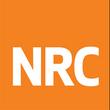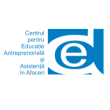Organizații vizate:
Anunțuri de Angajare
- Detalii
- Categorie: Angajări
Project Specialist/Local Public Administration Reform (NPSA-10) - UNDP Moldova/Building country resilience to shocks and increasing Government capacity to anticipate crises and recover better in a more inclusive way - 16401
Informațiile prezentate în articolul de mai jos pot să nu mai fie actuale sau să nu mai reflecte activitățile și programele curente. Anunțul este păstrat în arhivă pentru a asigura transparența și accesul public la informațiile despre inițiativele și proiectele implementate anterior.
Salariul lunar net: 52000 MDL - 64500 MDL +8,33% (fond de pensii pe lună)
Asigurarea medicala internationala 100% acoperire
To apply please follow the link/Pentru a aplica, vă rugăm să adresați link-ul: Apply
Background
Diversity, Equity and Inclusion are core principles at UNDP: we value diversity as an expression of the multiplicity of nations and cultures where we operate, we foster inclusion as a way of ensuring all personnel are empowered to contribute to our mission, and we ensure equity and fairness in all our actions. Taking a ‘leave no one behind’ approach to our diversity efforts means increasing representation of underserved populations. People who identify as belonging to marginalized or excluded populations are strongly encouraged to apply. Learn more about working at UNDP including our values and inspiring stories.
UNDP does not tolerate sexual exploitation and abuse, any kind of harassment, including sexual harassment, and discrimination. All selected candidates will, therefore, undergo rigorous reference and background checks.The public administration reform has been a constant concern and priority of the Government of the Republic of Moldova and has been guided by successive comprehensive Strategies since 2005.
The Prosperous, secure, European Moldova government programme released in February 2023 outlines the vision of a country with prosperous citizens and strong institutions, with full membership of the European Union. Accomplishing this strategic vision should be done including by effective governance based on strong and efficient central and local authorities, professional civil servants, transparent and modern processes.
The reform will focus on enhancing the efficiency and quality of the public service and structural changes to modernize the state and achieve European integration. The programme further prioritizes among its objectives to advance the reform of public administration at central and local level. Therefore, the new Public Administration Reform Strategy (PARS) lays out a clear path to advance these objectives related to EU integration, placing a special emphasis on local governance, and devoting an entire chapter to this important topic.
In December 2023 EU has decided to open the negotiations for EU accession with R. Moldova and Ukraine. This status offers a wealth of opportunities for development and reform but also comes with a series of requirements, such as the implementation of the Public Administration Reform strategy (PARS), which includes the territorial administrative reform, necessary to ensure sustainable funding for local authorities to deliver quality services to citizens.
A well-functioning public administration is crucial to effectively implement policies and strategies, as well as to ensure transparency and accountability in the use of public funds. This is particularly important for R. Moldova's aspirations towards European integration, as the country needs to meet certain standards and criteria in terms of governance, rule of law, and economic development.
Reforming public administration in R. Moldova is envisaged as a complex and long-term process, requiring sustained political will, technical expertise, and resources.
The Public Administration Reform Strategy was developed during Autumn 2022, and, after a broad consultation process, was approved by the Government in March 2023.
One of the pillars of the Strategy is the reformation of the local public administration that is linked mainly to the facilitation of the voluntary amalgamation process. The local public administration reform chapter of the Strategy sets as general objective to increase the capacities of Local Public Authorities (LPAs) to provide equitable, adequate, and accessible public services through their institutional and financial consolidation, as well as through effective local economic and social development policies, taking into full account the interests of the vulnerable and responding to R. Moldova’s EU accession aspirations.
The Government - particularly the State Chancellery and Ministry of Finance, which are the main actors in charge of this PARS component - lack the capacity and partially the resources to initiate and implement these novel and difficult aims of the PARS.
Duties and Responsibilities
The Project Specialist is providing top level counselling to the UNDP and the State Chancellery as well as the local public administration authorities on the operationalization of the local public administration reform, especially the piloting of the voluntary amalgamation of territorial administrative units in the Republic of Moldova. The Project Specialist will facilitate the coordination of the interventions related to the local public administration reform and territorial-administrative reform. He/she will be managing the UNDP support to LPAR and suggest ways of adapting the work to the current needs of the stakeholders involved in it. The Project Specialist will be also tasked to draft reports on the implementation of the activities related to LPAR and territorial administrative reform. Also, the Specialist will contribute to the resource mobilisation for the support in implementation of LPAR and territorial administrative reform.
The incumbent will ensure the provision of development services and products (commensurate with the scope of the project) of the highest quality and standards to national counterparts and clients through applying Human Rights-Based Approach (HRBA) and gender equality (GE) approaches. More specifically:
Strategic visioning and guidance to State Chancellery and UNDP on local public administration reform implementation:
- Conduct fact-based policy analysis and provide policy advice for the implementation of the public administration reform strategy (PARS) with a focus on the local public administration and voluntary amalgamation. The topics and activities include:
- Elaboration and improvement of the regulatory framework for voluntary amalgamation;
- Coordination and facilitation of the voluntary amalgamation process in the clusters of municipalities defined by the SC and/or UNDP;
- Review and improvement of local government finance system to respond to the impact of PARS;
- Elaboration of a due-diligence process (and associated guidebook) for the institutional consolidation of newly amalgamated municipalities; assistance in restructuring and improvement of service provision in newly amalgamated municipalities;
- Assistance in central government (CG) reforms related to functions and services provided at municipal level (such as education and social assistance);
- Elaboration of a set of tools, data and indicators for monitoring and evaluation of the PARS;
- Assistance to the SC for periodic reporting of M&E results;
- Advice and participation in communication activities pertaining to the voluntary amalgamation process;
- Conduct analytical work (e.g. institutional and risk analyses, capacity assessment, policy reviews and briefs) in the local public administration reform and territorial administrative reform areas, highlighting UNDP support and strategy;
- Promote information sharing with the relevant donor community by initiating and/or participating (when delegated) in consultative meetings with the donors and preparing briefs on local public administration reform and territorial administrative reform developments and activities.
Support Resource Mobilization and Partnership Building:
- Maintain and facilitate effective communication with public, national partners and among stakeholders, and ensure wide dissemination and visibility of project achievements;
- Engage with relevant donors (when delegated) and contribute to the UNDP resource mobilization efforts;
- Ensure that local public administration reform and territorial administrative reform interventions are implemented using a Human Rights Based Approach and incorporate Gender Equality principles. Raise awareness of project partners on HRBA and GE.
Knowledge Management:
- Promote information sharing within the Effective Governance Cluster and other CO teams, with national and local stakeholders and the relevant donor community by initiating and/or participating in consultative meetings and preparing briefs on local public administration reform and territorial administrative reform developments and activities;
- Ensure wide dissemination and visibility of local public administration reform and territorial administrative reform achievements. Participate in national and international fora, making substantive contributions as appropriate.
The incumbent performs other duties within their functional profile as deemed necessary for the efficient functioning of the Office and the Organisation.
Institutional Arrangement
Under the guidance and direct supervision of the UNDP Effective Governance Cluster Lead and in close coordination with the Chief Technical Adviser on Local Public Administration Reform , the incumbent provides effective and efficient coordination of activities related to local public administration reform and territorial administrative reform through a range of actions contributing to the design, planning, implementation, management, monitoring and reporting of the corresponding activities in line with the activities work plan.
The Project Specialist works in close collaboration with the Programme, Operations, Communications and other teams in the UNDP Country Office (CO) for effective achievement of results, anticipating and contributing to resolving complex project-related issues and information delivery. He/she also collaborates with other UN projects and development partners in supporting the local public administration reform and territorial administrative reform. The incumbent is expected to exercise full compliance with UNDP programming, financial, procurement and administrative rules, regulations, policies and strategies, as well as implementation of the effective internal control systems.
The Project Specialist in close collaboration with the Programme Analyst and the Programme Specialist supports UNDP CO in developing concept notes and project documents from the field of local public administration reform and territorial administrative reform to further develop the programme portfolio of Effective Governance Cluster.
Competencies
Core Competencies:
- Achieve Results: LEVEL 3: Set and align challenging, achievable objectives for multiple projects, have lasting impact
- Think Innovatively: LEVEL 3: Proactively mitigate potential risks, develop new ideas to solve complex problems
- Learn Continuously: LEVEL 3: Create and act on opportunities to expand horizons, diversify experiences
- Adapt with Agility: LEVEL 3: Proactively initiate and champion change, manage multiple competing demands
- Act with Determination: LEVEL 3: Think beyond immediate task/barriers and take action to achieve greater results
- Engage and Partner: LEVEL 3: Political savvy, navigate complex landscape, champion inter-agency collaboration
- Enable Diversity and Inclusion: LEVEL 3: Appreciate benefits of diverse workforce and champion inclusivity
People Management Competencies:
UNDP People Management Competencies can be found in the dedicated site
Cross-Functional & Technical Competencies:
- Strategic thinking:
- Ability to develop effective strategies and prioritized plans in line with UNDPs objectives, based on the systemic analysis of challenges, potential risks and opportunities; linking the vision to reality on the ground, and creating tangible solutions.
- Ability to leverage learning from a variety of sources to anticipate and respond to future trends; to demonstrate foresight in order to model what future developments and possible ways forward look like for UNDP
- System thinking:
- Ability to use objective problem analysis and judgement to understand how interrelated elements coexist within an overall process or system, and to consider how altering one element can impact on other parts of the system
- Effective decision making:
- Ability to take decisions in a timely and efficient manner in line with ones authority, area of expertise and resources
- Results based management:
- Ability to manage programmes and projects with a focus at improved performance and demonstrable results
- Communication:
- Ability to communicate in a clear, concise and unambiguous manner both through written and verbal communication; to tailor messages and choose communication methods depending on the audience.
- Ability to manage communications internally and externally, through media, social media and other appropriate channels
- Assets management:
- Knowledge of policy & procedures on PP&E; ability to prepare financial statements on PP&E; maintain Asset Management Module, Asset Dashboard; develop supporting tools for assets certification and further enhancements for AM module; design and run training programs, etc. on assets management and assets recording; run AP-AM interface; perform AP-AM-GL reconciliation; perform analytical review of AM reports and asset information to ensure completeness and accuracy of asset information
- Negotiations:
- The ability to lead efforts to work with others to conclude or settle a matter. These are often soft skills and include abilities such as communication, persuasion, planning, strategizing and cooperating. In the UNDP context, this skill includes working closely with the client to understand the parameters of an acceptable solution, and assisting business units in resolving commercial disputes, and working with staff members or their legal representatives to resolve a grievance, claim or issue.
- Negotiation often involves working with colleagues of differing views to arrive at an acceptable corporate solution.
Required Skills and Experience
Education:
- Master’s degree in international relations, political science, law, or public administration.
- Bachelor’s degree with additional 2 years of qualifying experience will be given due consideration in lieu of Master`s degree.
Experience:
- Minimum 5 years (with Master’s degree) or 7 years (with Bachelor’s degree) of progressive working experience in the design, management and implementation of project-based activities, preferably related to democratic governance, strategic advice, justice or home affairs;
- Previous experience in development assistance or related work for a donor or development organization;
- Proven experience in working with governmental institutions, NGOs and international organizations, successful experience working with UNDP will be a very strong advantage;
- Previous experience of work in the central or local public administration reform, territorial administrative reform, or in the local public administration overall is a very strong advantage;
- Experience in managing a multidisciplinary team or coordination between different teams.
Languages:
- Fluency in English, Romanian and Russian is required.
- Working knowledge of one or more additional languages relevant for Moldova, including Bulgarian, Gagauzian, Romani, Ukrainian or sign language would be an asset.
Required Skills:
- Experience in managing a multidisciplinary team or coordination between different teams;
- Experience in using computers and office software packages (MS Word, Excel, etc.) and advance knowledge of spreadsheet and database packages, experience in handling of web-based management systems.
Desired Skills:
- Previous experience in development assistance or related work for a donor organization, governmental institutions, NGO or private sector / consulting firm is a very strong advantage.
- Prior experience with UNDP Project management and/or implementation
- Additional training or certification in project management would be an advantage.
Disclaimer
Applicant information about UNDP rosters
Note: UNDP reserves the right to select one or more candidates from this vacancy announcement. We may also retain applications and consider candidates applying to this post for other similar positions with UNDP at the same grade level and with similar job description, experience and educational requirements.
Non-discrimination
UNDP has a zero-tolerance policy towards sexual exploitation and misconduct, sexual harassment, and abuse of authority. All selected candidates will, therefore, undergo rigorous reference and background checks, and will be expected to adhere to these standards and principles.
UNDP is an equal opportunity and inclusive employer that does not discriminate based on race, sex, gender identity, religion, nationality, ethnic origin, sexual orientation, disability, pregnancy, age, language, social origin or other status.
Scam warning
The United Nations does not charge any application, processing, training, interviewing, testing or other fee in connection with the application or recruitment process. Should you receive a solicitation for the payment of a fee, please disregard it. Furthermore, please note that emblems, logos, names and addresses are easily copied and reproduced. Therefore, you are advised to apply particular care when submitting personal information on the web.









